From England to Paraguay: My Expat Life
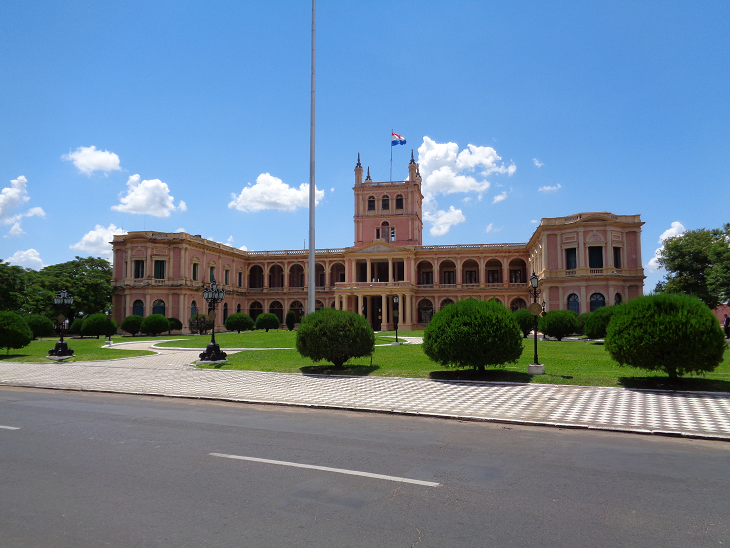
Let me introduce myself. My name is Simon Cooper. I grew up in Bedfordshire, England but for almost 20 years now have been living in Paraguay.
Why did you move abroad?
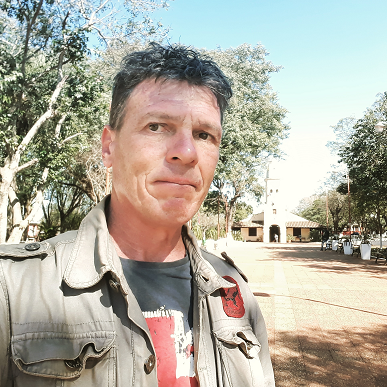
Becoming an expat was not something I had taken years to plan and consider. Although seeing more of the world certainly was. Instead all the right circumstances lined up and it seemed the most sensible and obvious thing to do. I simply followed what felt like the best course of action and then discovered I had become an expat. A smooth transition from one thing to another.
Back in England I had been working in a high street bank since the mid 80s. This was for many years an enjoyable place for someone such as myself who has a head for numbers. I was though never the typical bank clerk. Colleagues who I am still in contact with agree that the bank never quite managed to train the free spirit out of me.
Much of the joy had gone however by the late 90s as the place slowly turned into a shop and tasks were centralised and computerised to provide uniformity across the branch network. Not an enjoyable situation for me as the admin and decision making that made the job worth while were bit by bit taken away.
By that time, I already started looking beyond Britain, taking short haul breaks around Europe to anywhere that sounded interesting. Also I had begun to think about going travelling for a while to get away from the ever more dismal routine.
For me, travelling though had one mayor draw back. One that I had discovered on my weekends around Europe. I might see many things but I would just be passing though and never really getting to know the people I met along the way, or understand their lifestyle or culture.
This conundrum put all travel plans on hold for months as I read every travel magazine I could get hold of in search of a solution.
Eventually I found the answer in a short advert I spotted in the classified ads section of one of them. An English teaching project was to be set up in late 2002 for children in rural Paraguay. Enthusiasm rather than experience was asked for, which was handy as English teaching qualifications are not the sort of things you usually pick up in banks. Staying in one place, within the community, also appealed to me.
Furthermore Paraguay was and is a little of an unknown. Back then all I could find were a few pages in a general South America guide book. This made it for me an intriguing place to visit. Everything was there to be discovered. I would not be following the well trodden path of others.
So the decision was made. I had a couple of phone conversations with the woman who was setting things up, although I never met anybody, her or any of the other volunteers before I arrived in Paraguay.
I handed in my notice at the bank and in September 2002 flew to South America for the first time. Even then I did not know if the project really existed so it was reassuring to find someone waiting at the airport. If it had of turned out to be a hoax I was going to go travelling after all and with a bit of luck would have found something else as I made my way around South America.
But the project was for real and although a school house needed building, so was the school. Very soon there were dozens of children turning up everyday to be taught a bit of English. School in Paraguay is only half day so everyone was free in either the morning or the afternoon.
The school was in a green valley just outside the small town of Piribebuy, which is itself about 80 km from the capital Asunción. The area is the nearest hill country to Asunción and has long been popular with tourists. They come for it's beauty, open spaces, nature and in summer to cool off in the many streams that run down though the hills.
The English school ran for nearly 2 years before having to close due to a lack of fresh volunteers. I originally signed up for a year, but being in no rush to get back to England stayed until almost the very end.
When I did come back to England I only remained there for a few months. There was nothing on offer in the way of employment that had any more appeal than the one which I had left a couple of years ago. From England I headed first to South Africa. I liked the country a lot but I was not so keen on living behind high fences.
So instead I returned to Paraguay. To Piribebuy, the part of the land that I already knew quite well. While I looked for a place of my own, I lodged with the family whose land the school had been on.
After many enquiries I found a small sugar cane plantation less than a mile away that the owner was keen to get rid of as it was loosing money year after year. The sugar cane was cleared and I chose a spot raised on the valley side from where I could look over the road and the houses along it to the far side of the valley where sheer cliffs rose to build my house on.
And so I had my house built in the middle of what was really a field and now live surrounded by nature with beauty and restfulness in every direction.
The transition from England to Paraguay was smooth and natural for me and now I may have a simpler life but it is one of a much better quality. I have never regretted my decision to leave the bank and all those responsibilities behind.
How have you been impacted by COVID 19?
I was fortunate in living in the countryside and not having a job to commute to when the COVID pandemic occurred.
Here in the Paraguayan countryside there is plenty of space for everyone and so no need to cram houses close together. This greatly reduced any spreading of the virus. Whilst COVID has certainly been and issue and a concern it has not had anything like the impact on day to day life here as it has had elsewhere.
In Paraguay, the cities such as Asunción were hardest hit. The tighter controls that that bought has had some effect upon my lifestyle. Where as before I would catch a bus into Asunción every two or three months for a bit of city life, I went for more than a year and a half without a trip during the pandemic. Even nowadays I am just having day trips rather than the short stays I previously made. Hotels have not yet got back to being the relaxed friendly places they always used to be.
The inability to travel far has really been the greatest impact I have felt. Life is now though well on the way to returning to how it always used to be and I am looking forward to taking trips to visit various parts of the country over the coming months.
The self isolation that came along with lockdowns was never a concern to me. I have always enjoyed my own company and even before this all started it was not unusual for me to go a couple of days without seeing anyone.
Furthermore it has got me in the habit of keeping the fridge and cupboards well stocked in case another lockdown was suddenly imposed. Which is really quite a good habit to get into.
What sort of measures were in place in Paraguay during the pandemic?
There were firm measures put in place in Paraguay and kept there for a long time. With much of the population having received only a limited amount of education they were always clear and simple to follow. At times, they were harsher then they possibly needed to be, but the additional caution whilst inconvenient caused no one any harm. Over the past few months those have been relaxed and the only one still visibly in place is the requirement to wear masks in places such as supermarkets.
When the pandemic began Paraguay was one of the first countries to close its borders and they remained closed for a long time. Even now with the borders reopen only fully vaccinated travellers are allowed to enter the country. This isolation has ensured that case numbers have remained far lower in Paraguay than in neighbouring countries such as Brazil and Argentina.
Along with closing the country off from the world a strict lockdown was put in place. This remained a total lockdown for several weeks before slowly being relaxed. For the first couple of weeks the main roads were full of army checkpoints sending anyone without a really good excuse back to their homes.
Paraguayans are by nature relaxed people who take difficulties in their stride. There is also a strong culture of accepting the word of those in authority. Accordingly, although no one enjoyed the lockdown, it was generally accepted as something that had to be done.
On the negative side Paraguay is also a country of rumour and gossip. This had lead to a lower than ideal take up rate for vaccines. There is however no vocal anti vaccination movement and so there have been none of the mass protests seen elsewhere.
How do you make a living?
How to make a living has been something that has required consideration every since I first decided to relocate to Paraguay.
I knew there would be sacrifices to be made; as picturesque as the scenery may be it is not overflowing with employment opportunities. There is a limited client base for any locally based business and amongst the local population there is a lot of poverty.
For a while I tried teaching private English lessons. The trouble there was that whilst everyone was still as keen as they had been when the school was running they were unwilling or unable to pay to continue their education. And so whenever payment time arrived the students would disappear I would have to restart with fresh students from page one. As I am sure you can imagine I soon gave up on that.
There after, living off my saving and investments has been the main way of generating an income to cover the expenses.
Then most recently one of the reasons for starting a blog was to use it to earn some money. The blog itself does not bring in any money but exposure that it generates has bought in a few writing jobs. It is a very slow business getting known from somewhere as unknown as Paraguay but little by little I am working to expand my circle of contacts.
How has home schooling been for the Paraguayan children?
I have no children of my own but know enough people who do to know that the answer is patchy, very patchy indeed.
Like everything schools closed down in Paraguay soon after the pandemic began. They have only just reopened at the end of this February at the start of the new school year. This meant children had not seen a classroom for almost two years.
Classes were swiftly moved online to compensate. That was fine for the small minority in the towns and cities who had access to a computer or knew how to navigate their way around a smart phone. For everyone else it was not so good. All that would be available may have been a battered old smart phone which had previously only been used for looking through social media and messaging.
That was clearly not an ideal situation, although it was the best that was available. Many children fell behind and their parents lacked the knowledge to help them keep up.
Now that schools have returned there will be a lot of catching up to do, especially in the countryside. I know of children starting Year 2 or Year 3 who are still unable to read or write.
Children do still attend school for just half a day, either mornings or afternoons but to assist in catching up to the levels they should be at lower schools at least have for now extended the length of the school day giving the children a few additional hours of education every week.
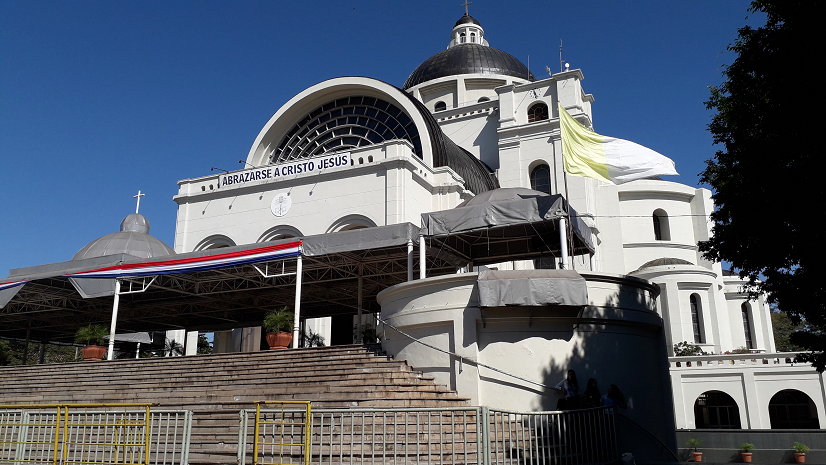
In your opinion, in comparison to England, how has the pandemic bewn managed in Paraguay?
I may no longer live in the UK but do keep a check on what is happening over there through the news. And frankly some of the rules and regulations put in place over there during the past couple of years have seemed unclear and a little confusing.
Here in Paraguay the cans and can'ts have been much clearer and simpler. Charts have been produced outlining any rule changes plainly without any vague exceptions allowed.
The country was sealed off which stopped the virus getting a hold and movement restrictions remained in place for a long time which reduced its spread. A night time curfew was in place for over a year and at times like Christmas and Easter buses were ordered off the roads to deter people from travelling to visit relatives.
The vaccination program was also made simple. To get mine, all I had to do was turn up at the vaccination center on the right day, take a seat and wait my turn.
Furthermore monthly food vouchers were given out to all who needed them to ensure no one starved. I very soon learnt not to go shopping the day after they were issued. Supermarkets were full of people with trolleys piled high spending every last penny they had been given.
Electric bills were also cancelled for a few months. It was said at the time that the unpaid electric would be paid back over the following months. That though has yet not happened and now more than a year later it is looking unlikely that repayment will ever be asked for.
Of course not everything has happened as advertised. Much of that was as a result of the corruption, which is endemic in Paraguay. The general population much as they dislike it are well used to the privileges of the elite. One noticeable example occurred shortly after meetings of small groups again became legal. There was a high society wedding in Asunción with far more than the permitted number of guests but no charges were ever bought as the police were busy at the time raiding a volleyball tournament in one of the poorer districts of the city just a few miles away.
The net result has been that, apart from the occasional face mask, life is pretty much back to normal in Paraguay.
How do you manage relationships with family back in England and are you able to use social media and the like to stay in contact with friends?
When I first arrived in Paraguay keeping in touch with the outside world was not an easy thing to do. The infrastructure for the mobile networks was only just being built, getting a phone connection out in the countryside was difficult and an internet one impossible. To contact England I would have to catch a bus into town, got to the internet cafe and then be lucky enough to be there on a day that they had an internet connection. Afterwards, there was a three hour wait for a bus back, so heading into town was a once a week thing.
There is also an office of the national phone company in town, with phone booths. However, this is expensive and anyway, even when I was living in the UK, I would never phone anybody up unless I really had to. Being on the phone most of the day at work made using it in the evening very unappealing. Instead I have used email since the mid 90s and social media soon after it appeared on the internet.
Thankfully things have changed a lot over the years. The internet is mobile internet rather than broadband, but works just fine. I do after all live in the middle of a field.
I can now send my parents a couple of emails a week and receive replies back. Those can be dealt with in the comfort of home rather than messing about having to go into town.
Now, my parents, like most people, also have social media so they can pick up any of the tales and photos I put on there for the world to see. In fact over the years social media in all its flavours has been very beneficial to me. Thanks to it I have been able to reconnect with many school friends and work colleagues whom I lost contact with years ago. In many ways I am far more socially connected now than I ever was living in the UK!
Much of what I post are comments, photos and video related to Paraguay. I get enjoyment out of showing people somewhere very different to where they are living and it is pleasing to hear that they are interested in what they are seeing.
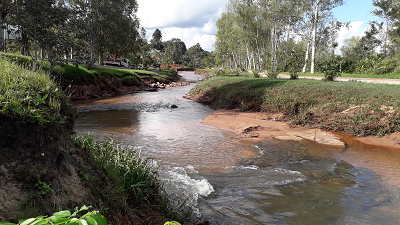
What is your favourite thing about being an expat?
That is a very easy question and one that can be answered with a single word: Freedom. The freedom to be who I want to be. The freedom to do what I want to do and the freedom to do things when I want to.
All that and the fact that I spend my time in a piece of green open countryside full of fresh air and natural views makes my life a very pleasant one.
What is the worst thing about being an expat?
That is a much harder question.
The quiet does not bother me. The isolation does not bother me. The way that certain things are not available everyday and the way that things never work quite right does not bother me either.
If I had to highlight one thing though, I think it would probably be the way that however much time I spend with local people and get involved with local events I know that I will always be seen as an expat, that I can never really become truly part of the local community. I am welcome everywhere I go but will always remain to some degree an outsider.
What do you miss about the UK?
In truth there is little I can say that I really miss about the UK. There are plenty of things I ensure I do whenever I am in the UK. Eating fish and chips, visiting London, travelling by train, seeing the sea etc. amongst other things, but not much that I actually regret not being able to do now.
A few that I do genuinely miss are browsing through a record shop (which is as hard to do in England as it is here these days), evening meals in a restaurant and sitting in a coffee shop watching the world go by.
I have found other things (things that I could not do in the UK) to fill the spaces the lack of them has left so there is not empty void in my life where good coffee belongs.
Before the pandemic how did you meet up with locals? How has that changed now?
Paraguayans especially in the countryside are warm welcoming people who always have time for whoever turns up at their house. With this being a warm land most days are spent outdoors and chairs can always be found for visitors.
In the pre pandemic days I would walk down the street, wave a someone sitting in their garden and then pop in to visit for a couple of hours. People would also turn up at my house although with it being set back from the street they would need a reason to make the trek up to it.
When a visitor arrives the first thing that must be done is to offer a drink. Here that drink traditionally comes in the form of terere. It is the national drink and consists of a gourd filled with crushed yerba mate leaves, a little like privet tea, over which iced water is poured from a jug. The infusion is then sucked up through a silver straw.
Terere is a communal drink and drinking it a ceremony. After the infusion has been drunk the gourd is passed back for a fresh fill of water and then handed to the next person in the line or around the circle. However, with the arrival of the pandemic and advice to not even shake hands things such as sharing straws were banned and everyone told to keep their terere to themselves.
As you can imagine, as it is the lubricant that bonded groups together, even after lockdowns meetings were awkward and uncomfortable for everyone involved.
Rules have now been eased and drinks can be again shared when people get together but there is far less casual socializing going on than there was before. I currently visit fewer homes, less often and people no longer randomly turn up at my house. That however it not altogether a bad thing.
What customs or habits are most strange?
At first the whole terere ceremony was very strange to me. No one in the UK would ever pass their drink round for everyone to share! But I am quite used to that now.
In additional to this there are a number of food related taboos in Paraguay ready to trip up the unprepared expat.
One of the most widely held relates to milk. This states that if someone drinks some milk they cannot drink anything else or consume juicy fruits such as oranges and watermelons afterwards. Doing so would be sure to make anyone ill.
There is also the traditional form of service found in more old fashioned stores. There assistants work the shop floor latching onto potential customers. Purchases, once selected, are taken and handed to someone behind a desk who removes the tags and puts things in bags whilst you are taken to a third person to pay before the bagged items are handed to a forth who finally hands them over.
Before I had picked up enough Spanish to follow what was going on, I had a number of confusing encounters trying to chase things round department stores.
A myth from Paraguay
Paraguay is a land with a rich mythology. The myths and culture of the Guarani, the indigenous inhabitants of the Paraguayan forests, survived the Spanish colonial times and now that folklore is a treasured part of the country's heritage. Many of the mythical figures are still believed to exist as real characters who must be appeased or guarded against.
One of the best known is Pombero. Let me tell you the story.
He was a member of a tribe of ugly dwarfs who lived in the forest and whose elders had decided they must marry tall beautiful girls in order to improve their looks and statue.
Nearby in a clearing in the forest lived a tribe of people and when one of the women gave birth, her husband heard a whispering coming the forest he took to be evil spirits but looking outside he saw a dwarf standing at the edge of the clearing and knew that he had come to steal his daughter away.
This was Pombero.
The girl did indeed grow to be tall and beautiful and as she got older she took to walking alone in the forest daydreaming of a husband. While doing this she would see a figure watching her from the shadows.
She was intrigued rather than scared and so soon took to walking in the forest hoping to see the mysterious figure. He would leave her honey to tempt her nearer.
Eventually her parents found out about the stranger in the shadows and knew it must be the dwarf who had visited on the night she had been born and forbid her to go into the forest again.
To try and catch Pombero the girls father placed tobacco and alcohol by the tree from which he had watched his daughter. However Pombero was cleverer than he and managed to meet the girl secretly and persuaded her to come to his village with him.
Once they realized the girl had gone, a war party was sent out to rescue her. They found the dwarfs and in a fierce battle most of them were killed and the girl was rescued. But not Pombero, he managed to escape into the forest and was never found.
To this day it is believed Pombero is looking for girls and young women to steal away. He is said to enter their houses as they sleep and gently touch their arms before returning to take them away.
In order to avoid this, offerings of tobacco and alcohol are left outside houses for Pombero to take rather than daughters.
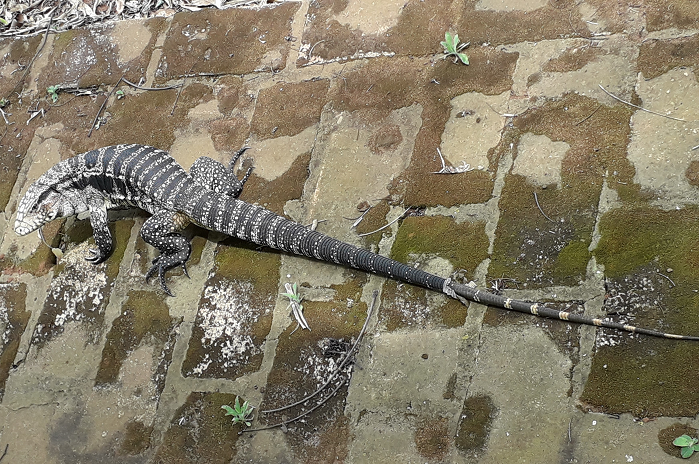
Advice to other expats coming to Paraguay
Paraguay is not a difficult place to live but having a tolerant and flexible attitude is an absolute must. It is a developing country and so what would be normal in the USA or Western Europe may not be quite the case here. Things often do not work exactly as they should and both electric and water a liable to go off from time to time. This affects locals just as much as expats and with a bit of patience a work round can usually be found.
Time is also a flexible concept in Paraguay. Nothing every starts at the advertised time. A delay of a couple of hours in perfectly normal. Again patience is the answer. That or simply turning up late for everything.
Additionally Paraguay is for most of the year a hot land. Summer temperatures in excess of 40 are common and should be expected. There can be frosty snaps in winter with a biting wind, although unpleasant weather rarely last more than a few days.
And finally there are two different Paraguays. City Paraguay and Country Paraguay. Life is slower and more relaxed in the countryside but the further you go away from towns the fewer modern amenities there are to be found.
When and why did you start a blog?
I first started writing a blog in late 2019. At first it was just a very simple thing which was little more than a casual hobby. Then, with the arrival of lockdowns in early 2020, I found I suddenly had extra time on my hands and so had it redesigned as a proper blog with a proper web address and that is what I have been using every since.
As for why did I start a blog, there were three main reasons.
Firstly, for years my parents had been telling me I should write a book about my experiences. I tried a few times but always got distracted by something else long before I could finish it. Writing blog posts however worked much better. Spending an hour or so writing a stand alone item and them moving onto the next worked much better for me. In fact there are now probably enough posts on their to fill a book.
Then secondly it was something that began as a hobby and turned into a constructive way to use my time. Putting down into writing for others to read all that I have learnt and experienced over the years.
And finally it is a route through which I can work to generate an income.
As yet I have not found a way of generating funds directly from my blog but by putting it out there to showcase my skills and knowledge, I receive occasional commissions to write for others. It takes time to build a portfolio and a reputation but that is my focus moving forwards.
As for the contents of the blog itself I try and cover as broad a range of topics as possible, all linked in some way to Paraguay. There are posts that are autobiographical, posts that cover history or culture, some that describe the towns and cities and others covering the nature and environment of Paraguay. My two most recent posts have been historical. Firstly a review of the small museum in my local town of Piribebuy and then a place describing the 1869 battle called Acosta Nu.
Having a blog is a useful and constructive way of using my time. A way of getting knowledge I have built up written down so that it may be recorded and shared.
It shows also my writing skills which I feel is a vital tool towards the goal of generating an ongoing income for myself.
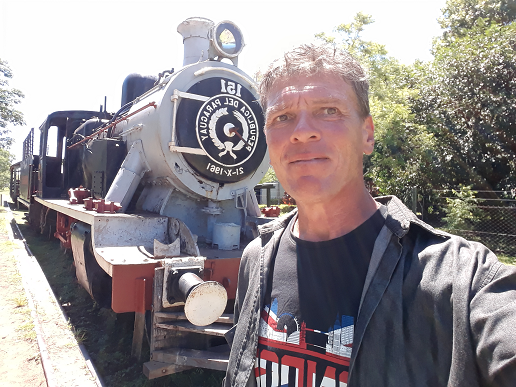
 The blog details:
simonsparaguay.com
The blog details:
simonsparaguay.com
To be considered for an interview, add your blog to BlogExpat.com
Editorial Team :)